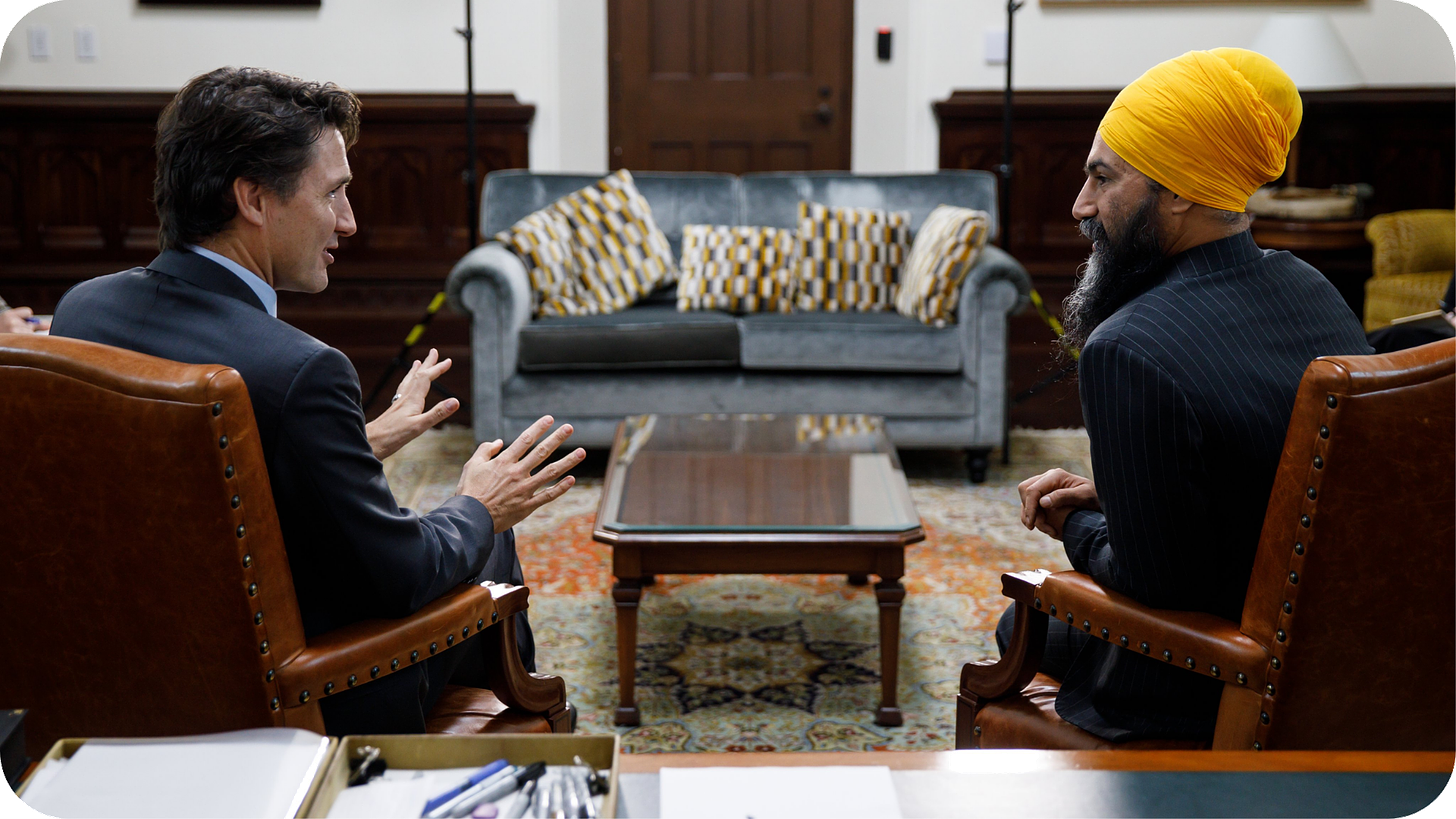Dr. Jüni stepping down: an exit interview
In this edition: Jüni to Oxford, the Liberal-NDP deal, platform planks and the big debate, meet Alleslev's campaign manager, mandate letters reach the SC
Happy Wednesday. Welcome to POLICORNER — your insider’s guide to Canadian politics, policy and power. The federal budget will drop tomorrow. What should or will be in tomorrow’s fiscal plan? Drop us a line.
In this 10 minute read, Dr. Peter Jüni on his time with the COVID-19 Science Table and his relationship with the province. Inside the Liberal-NDP deal. The political parties are gearing up for a spring showdown. The fight to release the mandate letters is off to Ottawa. Plus, meet Leona Alleslev’s campaign manager.
THE LEDE
It was three months after Premier Doug Ford declared the first COVID-19 state of emergency in Ontario. Dr. Peter Jüni — an epidemiologist and professor at the University of Toronto — was approached by Dr. Adalsteinn Brown, a familiar voice providing regular COVID-19 projection updates.
Brown asked him to join a to-be-formed COVID-19 Science Table — a group of epidemiologists and researchers who would advise the province on the response to the pandemic — as the Scientific Director. Jüni took up the offer.
As the pandemic enters year three, Jüni is stepping down from the advisory group and is moving to England to take on a research post at Oxford University. In a wide-ranging exit interview, Jüni spoke to newsBeyond about his tenure at the helm of the Science Table, his relationship with the provincial government and how his decision to step down came about.
You are stepping down as Scientific Director of the COVID-19 Science Table to take a position at Oxford. What led to your decision to leave?
“The original plan was that we would announce this at the end of March. When the information leaked, we went with the flow. I was contacted by a Toronto Star journalist indicating that my decision was leaked to journalists at Queen’s Park.
The start of the discussions with Oxford University was in March or April 2020. I then accepted the position at the end of January 2022. This was a combination of an excellent offer coming from the university, plus the possibility of being near our family. My parents and my wife’s parents are all elderly — two of the four had a serious illness during the pandemic (not COVID-19). Our oldest daughter is in a boarding school in Switzerland — she wants to finish high school there. The pandemic also showed us that we would be a bit challenged in the longer term if we are on this side of the pond. So, it seemed like the right move.”
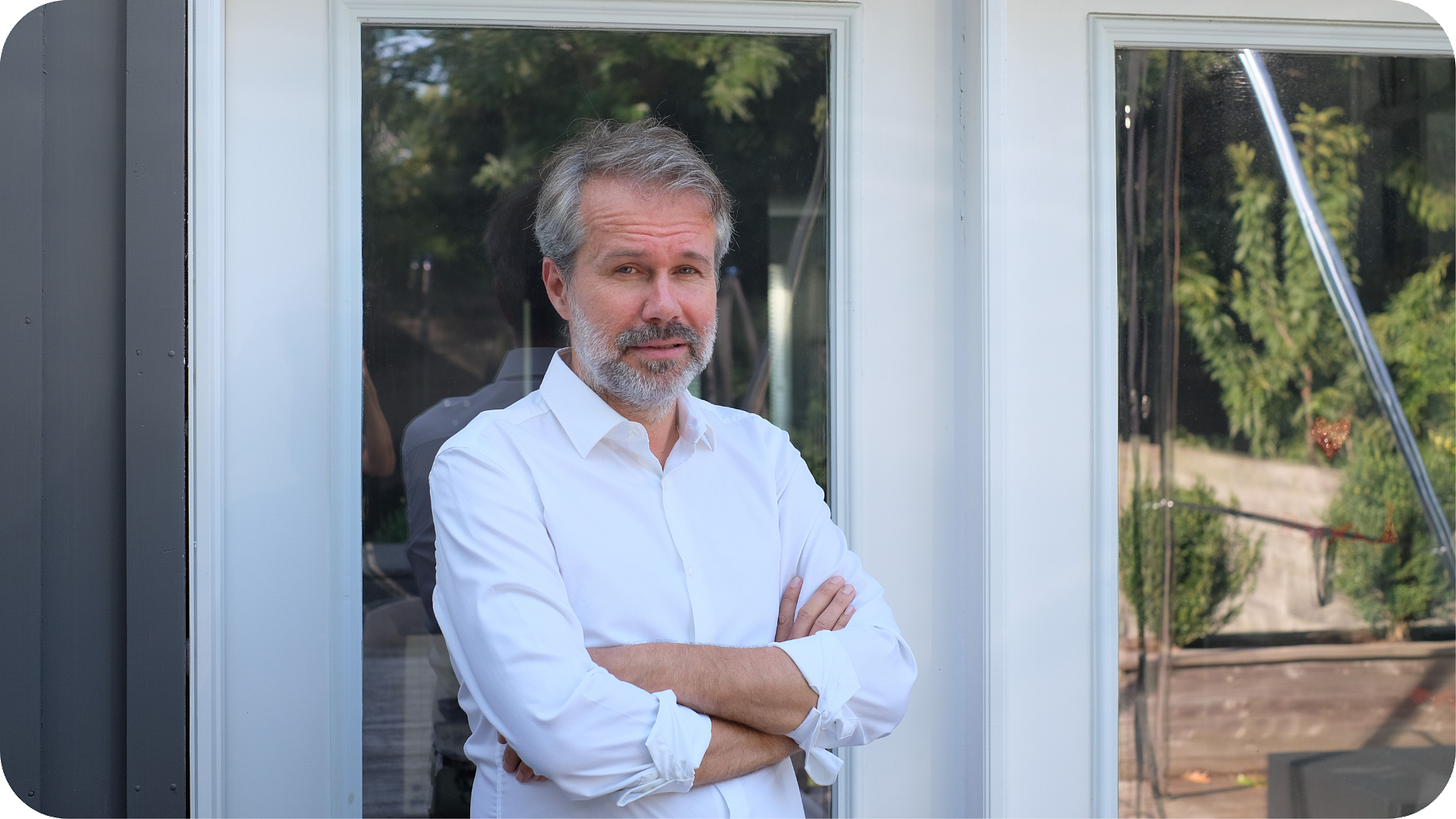
Tell us more about how you got the job of Scientific Director?
“I was approached by Dr. Adalsteinn Brown. He asked me to take the job and build up the Science Table. That was a big ask — my wife and I considered it very carefully. I talked with a few colleagues — not a lot — but a few. We decided that if they think my skill set would fit the bill, I can try. I was pretty considered as to whether I would actually be able to deal with the challenges. I didn’t have the slightest idea about what was coming.”
What does your role entail?
“I basically try to keep things going on in the background. I organized the Science Table meetings — we typically met twice a week for 90 minutes. I presented slide decks and prepared the questions. I was inviting guests and coordinating all of that. I did a lot of work related to Science Briefs that we have — the slide decks that we post on our website and the modelling updates.”
How has the relationship between the government and the COVID-19 Science Table evolved throughout the pandemic?
“It was quite formal at the start. There were regular weekly meetings with the Health Coordination Table. My colleagues — Dr. Brown and Dr. Beate Sander — would meet every three weeks with cabinet to discuss projections and next steps. We had a lot of informal exchanges with different members of ministries and agencies. This all worked relatively seamlessly.
Since Dr. Kieran Moore took over as the Chief Medical Officer of Health, there may have been a bit of a shift that correlated with changes in the pandemic organization over time. There were lots of exchanges that happened between Dr. Moore and myself. We would frequently connect and compare notes and discuss.”
Would you say that the government is now less reliant on the advice of the Science Table?
“Not necessarily. I think what really has changed is that Dr. Moore and I have a much closer working relationship than what I had with Dr. David Williams. Typically, I saw Dr. Williams at the Health Coordination Table and for very specific briefings. It’s much different with Dr. Moore.
We typically exchange some sort of communication through text messages. It all happens relatively informally. It may actually be — in many respects — a more efficient way of communication during that stage of the pandemic. This worked really well. When you look at the challenges we had with Omicron, we were able to make the right decisions to break the wave. We were in a considerably different position as compared with Europe.”
In August, Dr. David Fisman resigned from the table over “the degree to which political considerations appear to be driving outputs from the table.” What is your response to criticism that the Science Table is politically influenced?
“I think the proof is in the pudding. I think what is important is that you need to think very carefully — do you want to make a point or do you want to make a difference? The Science Table strives to make a difference. This is also about acknowledging that everybody has a different perspective and that sometimes making a decision is not that easy.
I highly respect Dr. David Fisman. He’s a highly skilled academic and epidemiologist. If this is his perspective, fair enough. It certainly wasn’t ours. I think the challenge is that he didn’t share this perspective with us upfront.”
What was the hardest moment for you in this role?
“I think there were two moments which were really hard. One was in the middle of the Alpha wave. The government had reopened then they took steps that were not in line with our advice. They closed playgrounds and started carding. It was really not helping the situation at the time. We seemed to have had a complete communication breakdown. At the time, I wondered what had gone wrong and whether I was the wrong person for this job. I considered resigning. In situations like these, I find it a good idea to be ready to go. I talked with colleagues and my family. Then essentially, I tried to stay on.
The other thing that was really difficult for me was during the Omicron wave, when I was out there and trying to change the narrative that even if it is a bit milder, we will see our hospitals overwhelmed if we’re not careful. In an interview with Power & Politics, I told the host that we would need to change our attitude. This statement was weaponized by the tabloid press. That resulted in a lot of hate. Dr. Brown advised me to involve the police. We installed security cameras and left for about 10 days to the north. It really got to me that there were threats against my family, including death threats.”
Would you take on a similar role in a future pandemic?
“Absolutely. It was a big privilege to use my skillset. It is much better to be involved if you have the necessary qualifications. It was the biggest privilege professionally for me. In my life.”
How long do you foresee the Science Table will last?
“I don’t know. I would believe it will last for at least 6 to 9 months from now. Probably nine. If it will continue longer, I couldn’t possibly tell you.”
What is your message for the next Scientific Director?
“If anything, this virus has humbled me. So, be humble. Be honest. I think that’s the most important part.”
The interview has been edited for length and clarity.
Inside the Liberal-NDP confidence deal
A deal has been reached between the governing party in Ottawa and the NDP that would keep the Liberals in power for the next three years.
The pact — a supply-and-confidence agreement — would mean that the NDP will support the Liberals on confidence and budgetary matters. The government would act on shared policy objectives that were identified by both parties — including dental care and paid sick days— in exchange.
The deets of the deal: Parties agreed to regular leadership meetings — and stock-take meetings by an oversight group — to monitor progress. The oversight group will include a handful of staffers and politicians. Briefings related to the agreement will be provided to NDP MPs by the public service and cabinet ministers. These should be done in a “timely fashion” to allow for discussion.
The NDP “will inform the government of their vote intentions before declaring publicly to permit discussions around confidence to take place.”
The government will launch a dental care program for low-income Canadians — fully implemented by the expiration of the pact. The government would pass the Canada Pharmacare Act by the end of next year. Child care legislation will be introduced to ensure that the agreements signed with the provinces have “long-term protected funding.”
The government will move forward with tax changes on financial institutions “who have made strong profits during the pandemic.” Changes to voting will be made in coordination with Elections Canada — Election Day will be extended to three days and voters would be allowed to cast their ballot at any polling place within their riding. The process of mail-in ballots will be improved.
The small print: The deal is not a coalition — NDP MPs are not joining cabinet. The NDP is welcome to withdraw support before the deal expires. Parties can continue to push forward parts of their agenda not included in the deal.
The response: “Canadians did not vote for an NDP government,” Conservative leader Candice Bergen said, adding that the deal was “no more than backdoor socialism.” A “false majority” is how Bloc Québécois chief Yves-François Blanchet characterized the deal.
The agreement sparked chatter at Queen’s Park about the possibility of a similar deal if a minority government is elected in June. Liberal leader Steven Del Duca didn’t rule it out — but he said there haven't been any discussions about it. “I'm prepared to have conversations,” he added.
Platform planks and star candidates — political parties are gearing up for an election showdown
The countdown is on and the political parties are gearing up for the June election. The Liberals unveiled a labour platform and launched a new logo. The NDP is pledging universal mental health care. The PCs uncovered a splashy new slogan and recruited two big names to run in the GTA.
The Liberals — in-person rally and labour platform plank
The Liberals were jam-packed for the party’s first in-person campaign rally in Toronto — catching flak for unmasking inside the rally room.
The party launched its labour plan. A Del Duca government would implement a regional minimum wage starting at $16 and provide 10 paid sick days for workers. Eliminating incorporation fees for small biz and building to a four day work week is in the plan. The party says the plan would “provide immediate recovery for workers.”
A new circular logo representing a “unified vision for the province” was unveiled by the party. The logo and rebranding — not welcomed by all — has been rolled out on the party’s website and on campaign material.
The NDP — $1.15B mental healthcare program
The NDP unveiled a major campaign promise — a Horwath-led government would deliver universal mental health care. The party launched a seven-page plan at an outdoor rally in Toronto — featuring artists Allie Sherlock and Ralph.
What’s in the plan? Counselling and therapy would be covered by OHIP. An NDP government would fund primary care doctors and nurses “to be trained in Cognitive Behavioural Therapy” and would bring community-based psychotherapy providers into the publicly-funded system. Legislation would be passed to recognize that “mental health is as important as physical health.”
The PCs — new slogan and two big names join the ballot
The PCs have a campaign theme — Get It Done. The party unveiled the splashy slogan in a campaign launch video — with Premier Doug Ford out front-and-centre. The party declared that the Premier is “getting things done.”
Two household names were appointed by Ford to run for the party in the GTA. Toronto City Councillor Michael Ford will run for the Progressive Conservatives in NDP-helmed York South-Weston. Toronto’s former police chief Mark Saunders will carry the blue in Kathleen Wynne territory — Don Valley West.
Mark your calendars: The party leaders will go head-to-head in a televised leaders’ debate on May 16. Steven Del Duca and Mike Schreiner have confirmed their attendance. The debate timing has yet to be announced.
NEWS WATCH
SCOOP: Former PC MPP and Harris-era cabinet minister Steve Gilchrist will serve as the campaign manager for Leona Alleslev’s Conservative leadership bid. In an email obtained by newsBeyond, Gilchrist told supporters that Alleslev “can get this critical mission done.” Alleslev officially entered the crowded race today.

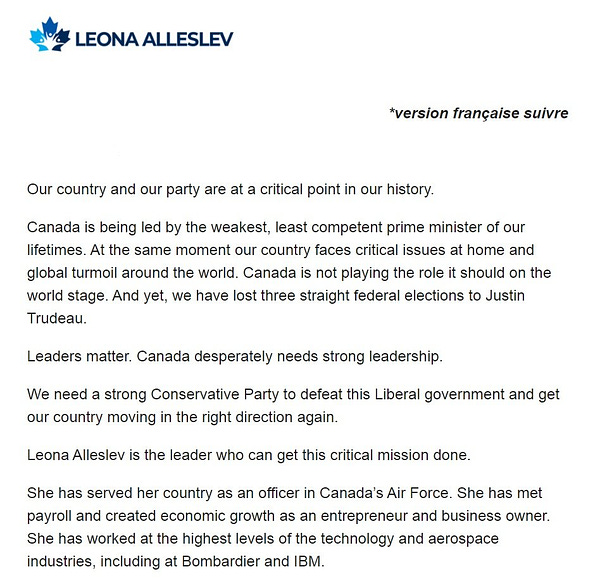
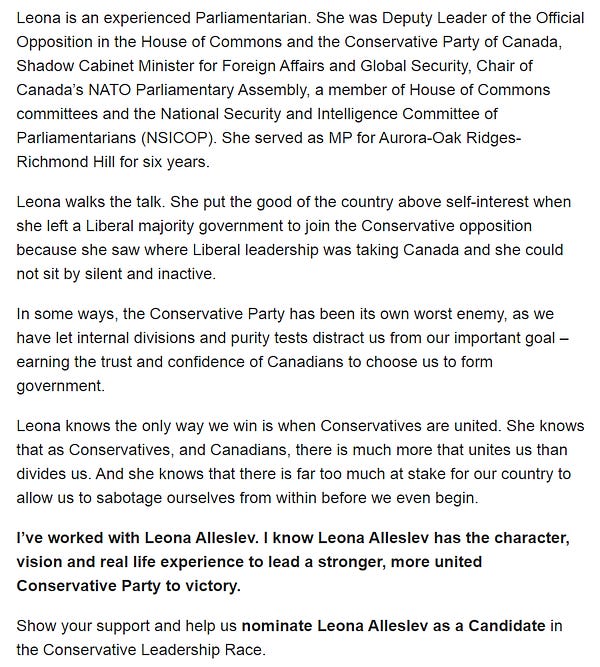
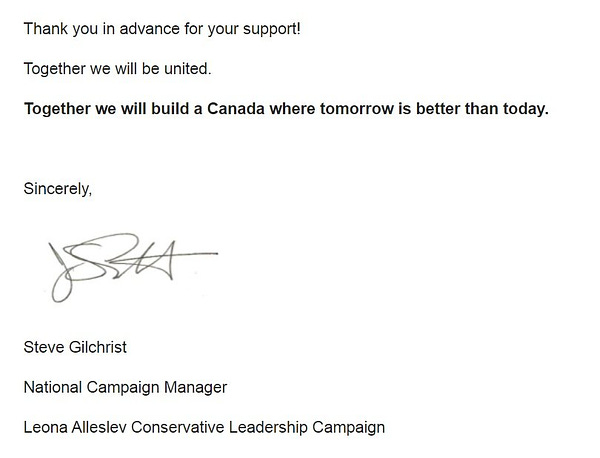
Ontario is seeking to appeal a court decision requiring the government to release mandate letters at Canada’s top court. A notice of application seeking leave to appeal was delivered to the Supreme Court, as newsBeyond scooped earlier last week. The Ministry of Attorney General refused to provide further comment as the “matter is subject to litigation.”
The childcare program is officially national. Ontario has signed a $13.2-billion agreement that would reduce childcare fees to $10-a-day in four years. The province will receive $10.2 billion in federal funding until 2025-2026 and an extra $2.9 billion in the following year. Premier Doug Ford said it is a “right deal for Ontarians” that will provide “flexibility in how we allocate federal funding.” More from the Prime Minister’s Office.
Toronto Police has launched an investigation into former Unifor National President Jerry Dias after he was charged by the union for breaching “his obligations in an interaction with a third party supplier.” In a statement to newsBeyond, Toronto Police spokesperson Laura Brabant said “the investigation is in its preliminary stages and we would not comment on specifics at this time, as to not compromise the investigation.”
The long-awaited housing bill has arrived. The More Homes for Everyone Act would increase the foreign homebuyer tax rate to 20% and create a new tool specifically designed to accelerate planning processes for municipalities. The province is committing to an action plan for the next four years with policies and tools to support the task force’s advice.
Ontario will raise the general minimum wage to $15.50/hour as of October 1. The government says this 8% increase — the third this year — “will help workers keep up with rising costs and inflation.”
WHAT WE’RE READING
CBC NEWS: “Defence getting billions of dollars in new money from Thursday's budget: source” by Murray Brewster
QP BRIEFING: “PCs planning to table budget days before election call: sources” by Charlie Pinkerton
TORONTO STAR: “Brampton MPP faces rare challenge for NDP nomination to run again” by Rob Ferguson
“Expel Russian diplomats and we risk losing our envoys in Moscow, Justin Trudeau says” by Tonda MacCharles
GLOBAL NEWS: “Toronto city councillor Joe Cressy announces resignation, joins George Brown College” by Hannah Jackson
“Gen. Jonathan Vance pleads guilty to obstruction of justice, gets conditional discharge” by Amanda Connolly
TRIVIA CORNER
In our last edition, we asked for the name of the Ontario Liberal Party in Barrie—Springwater—Oro-Medonte. Barrie Mayor Jeff Lehman is running for the party in that riding. He’s up against PC MPP and Attorney General Doug Downey.
THIS WEEK’S QUESTION: When did former Finance Minister Vic Fedeli table the Ford government’s first budget? Know the answer? Send it to newsbeyondca@gmail.com or reply to this email.
Thank you for reading POLICORNER. Do you have a draft copy of tomorrow’s federal budget? Know when the provincial budget will drop? Have a trivia suggestion or news tip? Send us a note and you’ll stay anonymous. Share the newsletter on Twitter and invite your colleagues to sign up today.



